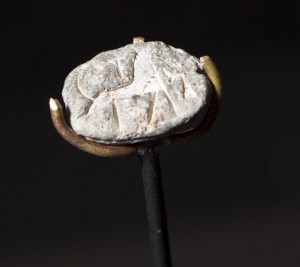Exploring the Ruins of Ai: Archeological Find in Israel Confirms Historicity of Biblical Account
1766 43 6 2481
 JERUSALEM – Archaeologists working in Israel have announced the discovery of an ancient artifact in Israel that confirms a biblical account in the book of Joshua.
JERUSALEM – Archaeologists working in Israel have announced the discovery of an ancient artifact in Israel that confirms a biblical account in the book of Joshua.The Associates for Biblical Research (ABR) is a ministry committed to exploring the ancient biblical world through archaeology. According to ABR’s website, archeological findings frequently provide direct support for Scriptural accounts.
“Many archaeological discoveries relate directly to Scripture and confirm the historicity of the biblical record,” the ABR website states. “Other discoveries provide fascinating background material for the biblical narratives. As people are made aware of these discoveries, the Bible suddenly comes alive and Bible study is made more interesting and meaningful.”
In late May of last year, an ABR team spent two-and-a-half weeks excavating ruins at Israel’s Khirbet el-Maqatir site, which is nine miles north of Jerusalem. ABR experts believe the site is the location of Ai, which, according to Joshua 7–8, was a city the Israelites conquered and destroyed during their conquest of the Promised Land.
“The coup des grâce came in the form of a tiny object less than three-quarters of an inch long—an Egyptian scarab,” the report states. “The name scarab derives from the French word scarabée, meaning ‘beetle.’ Ancient Egyptians especially revered the dung beetle which they related to the sun god.”
The ABR report explains that a scarab is “carved in the shape of a beetle, with a rounded back and a flat underside.” The scarab discovered by the ABR team features a hole drilled longitudinally through it—evidence that it was most likely worn as a necklace or attached to a ring.
Connect with Christian News
“Our thesis has been that the [Ai] fortress was destroyed in the Late Bronze I period, based on the pottery and other archaeological evidence we have uncovered,” Smith said. “Based on our analysis, the scarab is from the same time period, providing us with a date of occupation independent of the pottery.”
“It therefore verifies our previous dating and correlates perfectly with our overall theory,” Smith continued. “The Bible records that the city of Ai was occupied in the late 15th century B.C., and destroyed by the Israelites. The scarab is consistent with that assertion.”
ABR experts say the scarab may have been used by the last king of Ai, before the Israelites defeated the city. According to Joshua 8, the Israelites defeated the inhabitants of Ai and then burned down the city.
Overall, the scarab and other artifacts discovered at the site “provide solid evidence for dating our fortress to the Late Bronze I period, the time of the Exodus and Conquest,” ABR reports. Due to the archeological and biblical significance of the scarab, Christianity Today named it the #1 biblical archeology discovery of 2013.
Smith told Christian News Network that the scarab, along with other artifacts from the Khirbet el-Maqatir site, were put on display at Houston Baptist University last week and will remain available for public viewing until December 20, 2014. Smith also said a symposium on February 8th will feature speakers highlighting the importance of the Bible’s archeological historicity.
In a blog post, Bryant Wood with ABR said that this is an exciting time for biblical archaeology.
“As we continue our excavation and research, God is providing stronger and stronger evidence countering the attacks of critics and supplying reasons to believe for those seeking the truth,” Wood stated. “Thank you for recognizing the apologetic and evangelistic value of archaeological research. It verifies and powerfully proclaims the truth of God’s Word in this scientific age of doubt, skepticism and moral decay.”
....
Taken from: http://christiannews.net/2014/01/31/exploring-the-ruins-of-ai-archeological-find-in-israel-confirms-historicity-of-biblical-account/


No comments:
Post a Comment